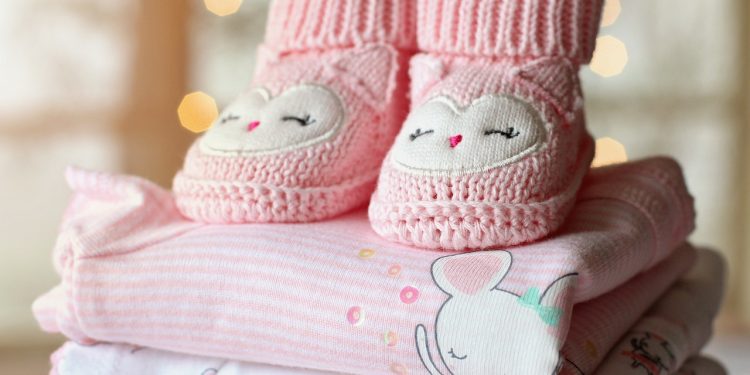When it comes to choosing clothes for your baby, comfort, safety, and quality are at the forefront of every parent’s mind. With so many fabric options available, one material that stands out for its numerous advantages is organic cotton. Organic cotton has become increasingly popular among parents seeking a healthier, more sustainable choice for their baby’s clothing. It’s not just a trend; organic cotton offers tangible benefits that make it an excellent choice for newborns and young children. This guide will explore why organic cotton is a superior option and how it can contribute to your baby’s comfort, health, and the well-being of the environment.
1. Gentle on Sensitive Skin
A baby’s skin is much more sensitive compared to an adult’s, which means it requires extra care to avoid irritation. Organic cotton is grown without the use of harsh chemicals, pesticides, or synthetic fertilizers, which significantly reduces the chances of skin irritation or allergic reactions. Conventional cotton, on the other hand, is often treated with chemicals that can leave behind residues, potentially causing rashes or discomfort for babies with sensitive skin.
Organic cotton is soft and breathable, which allows air to flow through the fabric, reducing the risk of your baby’s skin becoming overheated or irritated. This is especially important for newborns, whose skin is highly vulnerable. By choosing organic cotton clothing, you’re ensuring that your baby’s skin remains comfortable, safe, and free from harmful substances.
2. Environmentally Friendly Production
Another significant advantage of organic cotton is its environmentally friendly production process. Unlike conventional cotton, organic cotton is grown using sustainable agricultural practices that prioritize soil health, water conservation, and reduced pollution. Conventional cotton farming is notorious for its heavy use of pesticides and large water consumption, which can harm local ecosystems and deplete natural resources.
Organic cotton is grown without synthetic chemicals and requires significantly less water, making it a more sustainable choice. Additionally, organic farming practices encourage crop rotation and soil biodiversity, which helps maintain healthy ecosystems. By choosing organic cotton clothing for your baby, you’re contributing to a more sustainable future and helping to reduce the environmental footprint of the fashion industry.
3. Reduced Exposure to Harmful Chemicals
Babies are particularly vulnerable to the effects of chemicals, as their bodies are still developing, and their skin is highly permeable. Many conventional cotton garments are treated with chemicals such as formaldehyde, flame retardants, and dyes that may contain heavy metals. These chemicals can be absorbed through the skin and may pose health risks over time.
Organic cotton clothing is free from harmful chemicals, making it a safer choice for your baby. By reducing your baby’s exposure to potentially toxic substances, you’re taking an important step toward ensuring their health and well-being. Non-toxic dyes are also used in organic cotton garments, which means there’s less risk of irritation and allergic reactions.
4. Comfort and Breathability
Comfort is one of the most important factors to consider when dressing your baby, and organic cotton excels in this area. The fibers in organic cotton are softer than those in conventional cotton, as they haven’t been damaged by harsh chemicals during the production process. This results in a fabric that feels softer and more comfortable against your baby’s skin.
Organic cotton is also highly breathable, which helps regulate your baby’s body temperature. Babies can easily become overheated, which can lead to discomfort and disrupted sleep. The breathability of organic cotton allows for better airflow, keeping your baby cool in warm weather and cozy in cooler temperatures. This makes organic cotton an ideal fabric for all seasons, providing comfort year-round.
5. Durability and Quality
Parents know that babies go through clothes quickly—whether it’s due to rapid growth or the inevitable messes that come with feeding and playtime. Organic cotton clothing is known for its durability and quality, making it a worthwhile investment for your baby’s wardrobe. The absence of harsh chemicals during the production process means that the fibers remain strong and intact, resulting in a fabric that can withstand frequent washing and wear without losing its softness or shape.
This durability also makes organic cotton clothing a great option for handing down to younger siblings or friends, which further extends the lifespan of the garment and reduces waste. High-quality organic cotton clothes maintain their appearance and comfort even after many washes, ensuring that your baby always feels cozy and comfortable.
6. Hypoallergenic Properties
Organic cotton is naturally hypoallergenic, making it an excellent choice for babies who are prone to allergies or have particularly sensitive skin. The absence of pesticides, chemicals, and toxic dyes means that organic cotton is less likely to cause allergic reactions or skin irritations. This is especially important for newborns, who may have skin that reacts to even the smallest irritants.
For parents who are concerned about eczema or other skin conditions, organic cotton can provide peace of mind. The soft, chemical-free fabric helps to minimize the risk of flare-ups and ensures that your baby’s skin remains as healthy as possible.
7. Supporting Ethical Practices
Choosing organic cotton also means supporting ethical and fair labor practices. Many organic cotton farms and manufacturers adhere to strict guidelines regarding worker safety, fair wages, and humane working conditions. The conventional cotton industry is often associated with exploitative labor practices, including low wages and unsafe working environments.
By opting for organic cotton, you’re supporting companies that value the well-being of their workers and the communities in which they operate. This means your purchasing decisions can help foster positive change within the fashion industry, encouraging more brands to adopt sustainable and ethical practices.
8. Versatile Wardrobe Options
Organic cotton is used to make a wide variety of baby clothing, from onesies and sleepers to hats and mittens. Its versatility makes it easy to build an entire wardrobe that meets your baby’s needs throughout different seasons. You can find organic cotton clothing in a range of styles, colors, and patterns, allowing you to dress your baby comfortably without sacrificing style.
Many brands that specialize in organic cotton also focus on producing timeless, gender-neutral designs that can be easily mixed and matched. This versatility not only makes dressing your baby easier but also promotes a more sustainable approach to fashion by reducing the need for an overly extensive wardrobe.
9. Long-Term Benefits for Your Baby and the Planet
Choosing organic cotton clothing for your baby is a decision that has long-term benefits for both your child and the environment. By reducing exposure to harmful chemicals, you’re supporting your baby’s health and helping to prevent potential health issues down the line. Additionally, organic cotton farming helps protect the environment by conserving water, reducing pollution, and promoting biodiversity.
These long-term benefits extend beyond your immediate family. By choosing organic cotton, you’re helping to support a shift towards more sustainable and ethical practices within the fashion industry. As more parents make the switch to organic options, the demand for sustainable products will continue to grow, encouraging more brands to adopt environmentally friendly practices.












